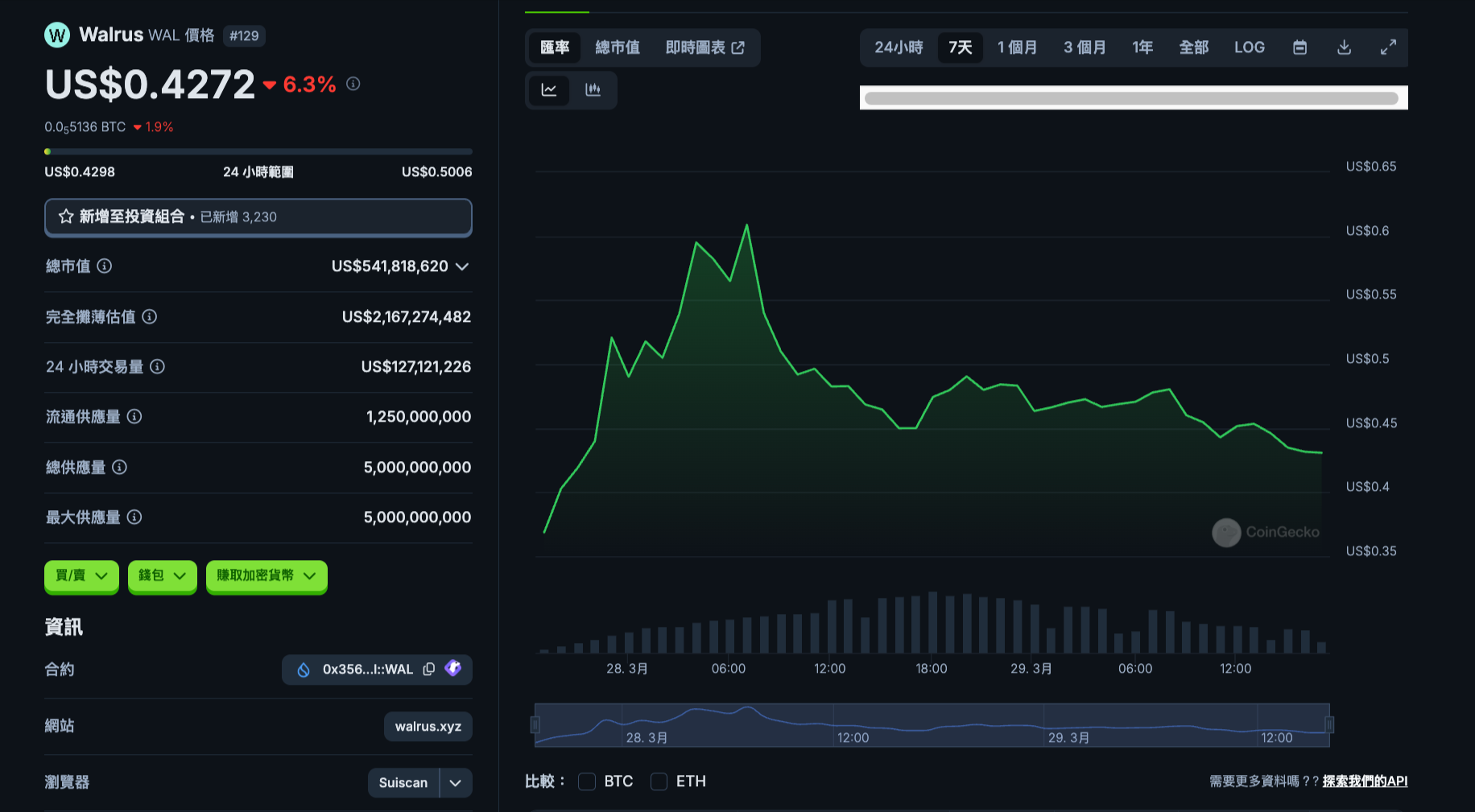Recently, the decentralized storage and data availability protocol Walrus Protocol (nicknamed "Walrus" in Chinese), developed by Sui's popular public chain developer Mysten Labs, has sparked heated discussions in the crypto community. Its mainnet officially launched on the 27th, initiating a token airdrop and listing on mainstream exchanges like Bybit, Bitget, MEXC, and Upbit, with $WAL reaching a peak of $0.6 after opening.
The founder of Wool Working Studio @Ethcoin3 revealed that they used thousands of accounts to brush the Walrus airdrop, obtaining up to 15 times the returns, and if $WAL rises to 1 USDT or 2 USDT, the returns could jump to 30 times.
Randomly running 1000 accounts yielded 15000, with an actual cost of 1 USDT per account, approximately 100 SUI, actually not that high. Calculating current returns: 15000*0.5=7500/500=15 times! If calculated directly at a price of 1 USDT, it would be 30 times.
Moreover, the Walrus airdrop rules were relatively simple, previously attracting many community users to prepare, allowing numerous wool parties to profit, regretting not running more accounts:
- Those who did the testnet will receive an airdrop if they have 0.1 SUI on the mainnet
- Those who didn't do the testnet can only qualify if their staking amount and interactions are sufficient
According to on-chain data, approximately 120,000 Sui addresses received the airdrop. Up to 80% of addresses received less than 1000 tokens, while 142 large addresses received over 80,000 tokens, with one address obtaining 100,000 airdrop tokens.
Walrus Protocol: A New Star in Sui Ecosystem's Storage and DA
As a decentralized storage and data availability (DA) protocol, Walrus, backed by the Sui development team's halo, raised up to $140 million in funding. Investors include a16z crypto, Electric Capital, Franklin Templeton Digital Assets, Creditcoin, and many other renowned venture capitals, generating user expectations before mainnet launch.
Compared to existing decentralized storage leaders Filecoin (FIL) and Arweave (AR), Walrus claims advantages in speed, cost, storage size, and duration, potentially challenging the current track's landscape.
Its native token $WAL rose over 66% after listing on exchanges on the 27th, reaching a historical high of $0.6 on the 28th, currently falling back to $0.4272, down 6.3% in the past 24 hours.








